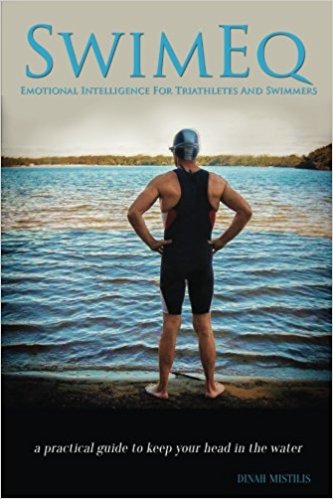SwimEQ and Emotional Intelligence

Academic papers on the topic of emotional intelligence, or ‘EI’, can be traced to the 1960’s, and they proposed an emotional counterpart to the more well-known intelligence quotient, or ‘IQ’. The term ‘EQ’, for emotional quotient, was coined as tests were developed to quantify measures of emotional intelligence. In a 1990 paper, Peter Salovey and John Mayer defined EQ as ‘the ability to monitor one’s own and others’ feelings and emotions, to discriminate among them and to use this information to guide one’s thinking and actions.’ Although there are many competing definitions and models of emotional intelligence, there is universal agreement that the foundation of EQ is the ability to recognize and regulate your own emotions.
Most likely you can recall emotional highs and lows from past experiences. During the low periods you may have experienced symptoms such as clouded judgment, inability to think clearly or process information, negative self-talk taking over, or a lack of confidence to tackle a new skill or race. Is it possible that the lows can be minimized and managed with insight into how your emotions impact your thinking?
Psychologist David Caruso notes that ‘It is very important to understand that emotional intelligence is not the opposite of intelligence, it is not the triumph of heart over head — it is the unique intersection of both’. This is where the SwimEQ program is unique, offering a convergence of skills to enhance swim knowledge and skills to raise your EQ.
One of the biggest challenges in swimming is the ability to combine EQ with physical performance. During the many years that I have spent teaching people to swim and race, the word that I most often used when addressing mental strength is ‘relax.’ Sounds like a simple instruction, yet it is so difficult for many swimmers, and for many different reasons.
Working with Izzy was no exception. He had completed several sprint distance triathlons and was looking to increase his race distance. The swim, however, was a huge challenge. ‘Breathe, relax,’ I would say when he became anxious. But simple, rational instructions were not helping. We realized that the anxiety was not caused by physical limitations, but by the inability to manage emotions that were being stirred up by being in the water.
Izzy’s professional experience in sports neuropsychology and his own challenge with swimming provided a unique opportunity for me to learn how the brain reacts to stress and the impact of emotion on athletic performance. Working with Izzy, I recognized the importance of acknowledging those emotions and encouraging my swimmers to talk about how they feel. Only then could we implement EQ as a way to manage those emotions and produce better performances.
Over the course of many hours spent with many swimmers, I have developed a process that specifically targets how to manage the emotions that are related to swimming. You will learn how to acknowledge what is happening to you emotionally, and how to quickly and efficiently analyze these emotions. You will learn to grade your emotions and then implement an action plan relevant to your level of emotional change. Finally, you will learn how to integrate these skills so that you are training your knowledge and emotions simultaneously. I am excited to share SwimEQ with you and to give you skills to shape your future in swimming.
Learn more about our SwimEQ progams and read our testimonials.

